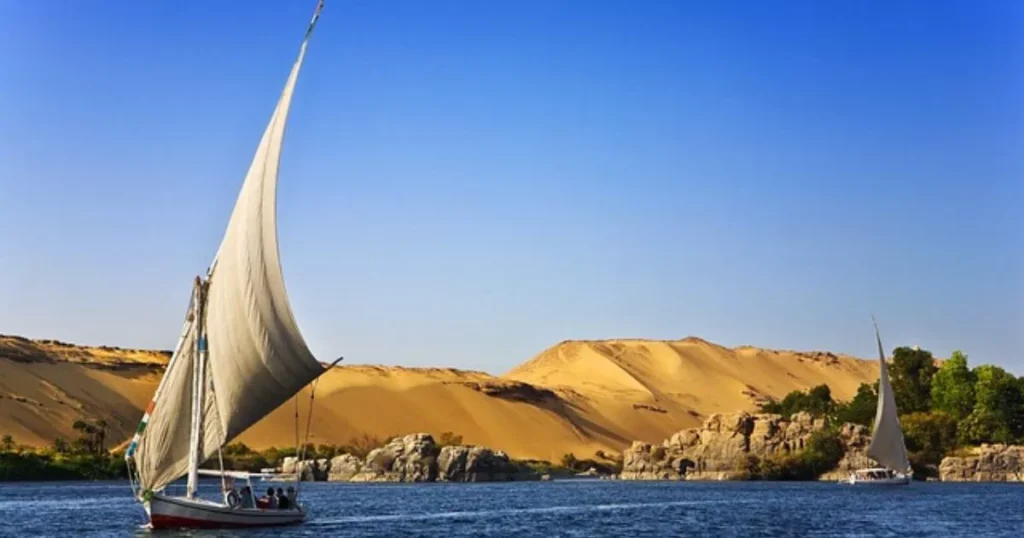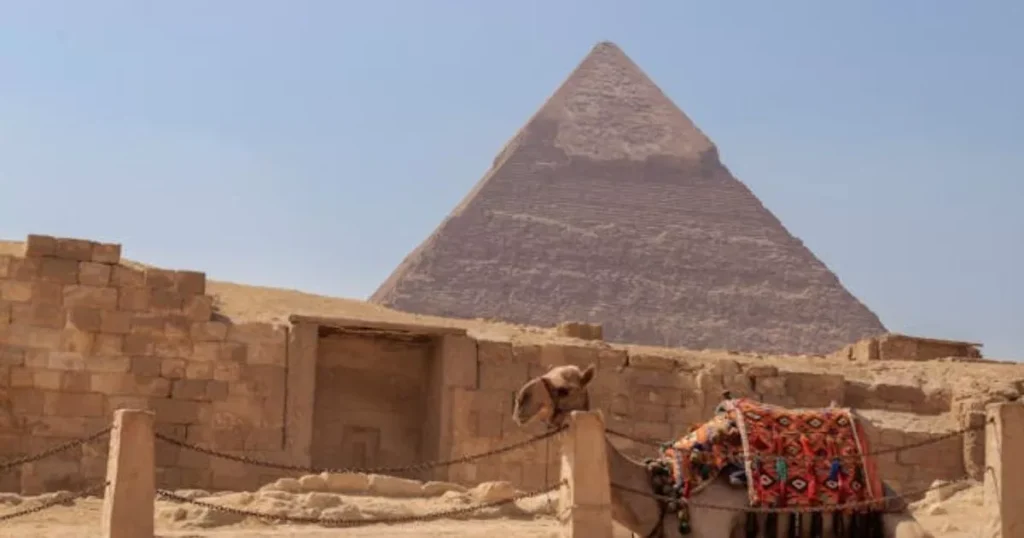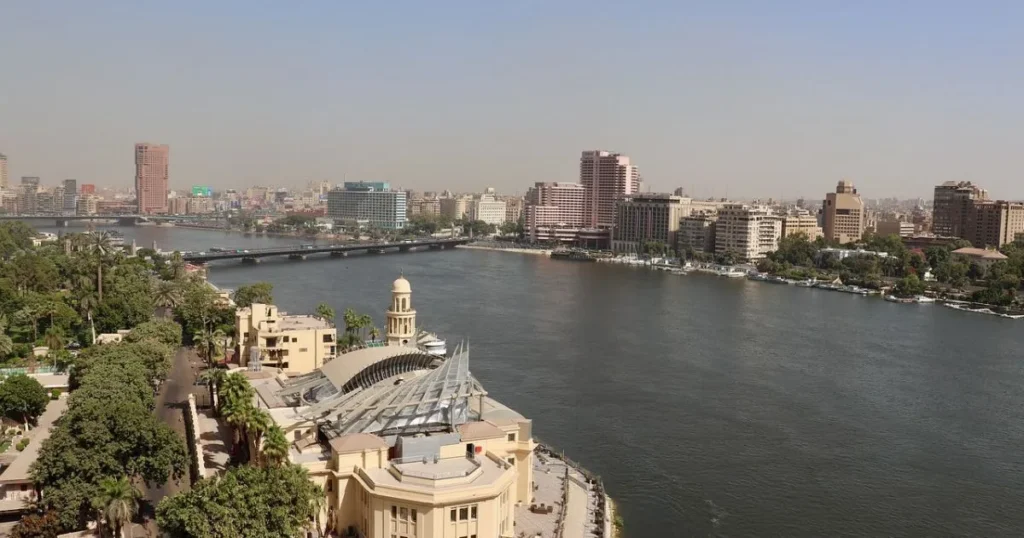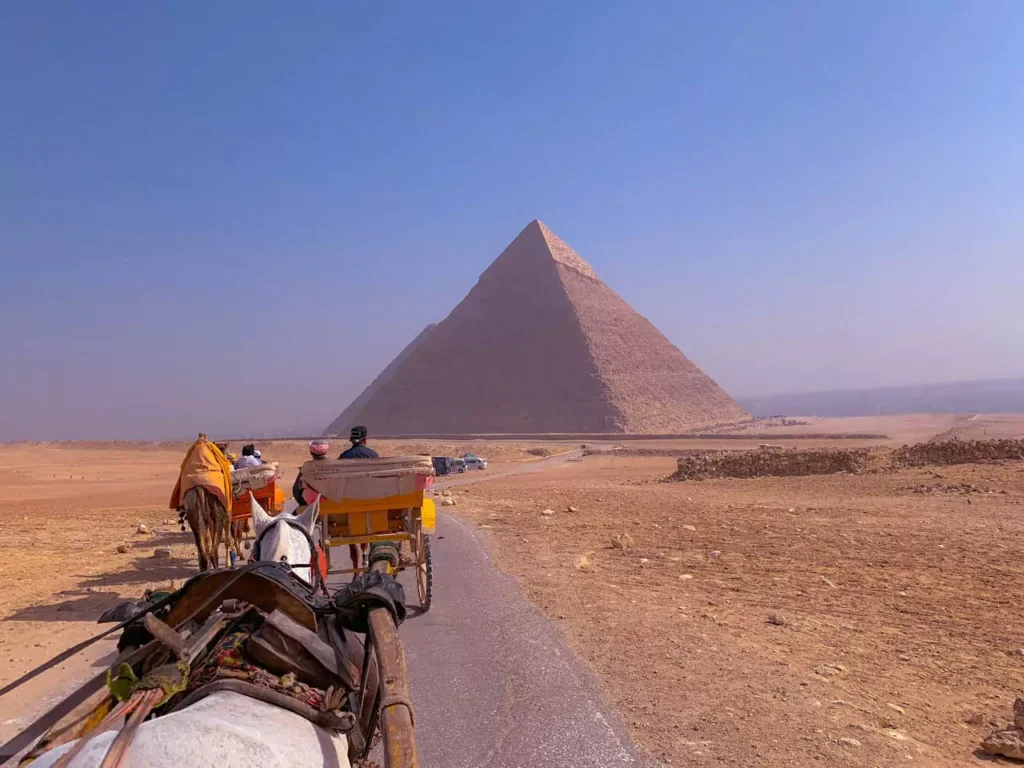When considering the best time to visit Egypt, it’s essential to reflect on what kind of adventure you’re seeking. Whether it’s marveling at the ancient pyramids, cruising the Nile, or basking on the Red Sea’s pristine beaches, the timing of your trip can significantly influence your experience. Imagine stepping into a world where history meets breathtaking landscapes, where every moment offers the promise of discovery and wonder. In this article, we’ll explore the seasons, destinations, and essential tips to ensure your Egyptian adventure is nothing short of extraordinary.
Table of Contents
Why Timing Matters When Visiting Egypt
Timing is everything when it comes to travel, and Egypt is no exception. The country’s diverse climate and rich cultural landscape mean that the experience you have can vary significantly depending on when you visit.
- Weather Conditions: Egypt is primarily a desert nation, which means the temperatures can fluctuate greatly throughout the year. Summers are characterized by scorching heat, especially in the southern regions like Luxor and Aswan, where temperatures can exceed 40°C (104°F). In contrast, winters are milder, with daytime temperatures averaging between 20°C to 25°C (68°F to 77°F), making it the best time to explore the country’s outdoor attractions comfortably. Understanding the climate will help you plan your activities, pack appropriately, and make the most of your trip.
- Crowd Levels: Visiting during peak tourist seasons—typically winter and spring—can lead to crowded attractions, long lines, and a less authentic experience. If you prefer a more tranquil environment, it’s crucial to choose your travel dates wisely. Traveling in the shoulder seasons, such as late spring (March to May) or early autumn (September to November), allows for fewer crowds, giving you the opportunity to explore without the typical rush. This can enhance your overall experience by allowing more time to enjoy each site at your own pace.
- Cultural Events: Egypt is home to many fascinating festivals and events throughout the year. From the Cairo International Film Festival to local celebrations like Sham El Nessim, timing your visit to coincide with these occasions can add an extra layer of excitement to your trip. Participating in these cultural events allows you to gain deeper insights into Egyptian traditions, music, food, and lifestyle, providing a richer travel experience. Being aware of the calendar of local events will help you tailor your trip to include these unique opportunities, making your visit to Egypt truly memorable.

Seasons in Egypt
Winter (December to February)
Winter is often considered the ideal season for most travelers, and for good reason. With daytime temperatures averaging around 20°C to 25°C (68°F to 77°F), this season provides a pleasant climate for exploring outdoor attractions without the discomfort of extreme heat. It’s the perfect time to experience Egypt’s rich cultural heritage and stunning landscapes without the intense sun.
- Key Attractions: Winter is the best season to visit iconic sites like the Great Pyramids of Giza, the Sphinx. The mild weather allows for leisurely walks through the ancient ruins, enhancing your appreciation of their grandeur. The crisp, clear air and moderate temperatures make this the ideal time for sightseeing, whether it’s exploring the vast desert landscapes, marveling at the architectural wonders, or discovering the mysteries of ancient Egypt.
- Cultural Experiences: The winter months also feature several local festivals, providing a unique glimpse into Egyptian culture. One such event is the Cairo International Film Festival, attracting filmmakers and audiences from around the world. Participating in these cultural gatherings can deepen your understanding of Egyptian traditions and give you a more immersive travel experience. Additionally, exploring local markets and participating in traditional crafts can be a rewarding way to connect with the local culture.
- Tips for Visiting: To make the most of your winter visit, pack layers for the evenings, as temperatures can drop significantly after sunset. During the day, the weather can be comfortably warm, but evenings may require a light jacket. Sun protection is crucial—sunscreen and sunglasses are essential, even in winter, to guard against the intense sunlight that can still be present. Don’t forget a hat and comfortable walking shoes for exploring ancient ruins and bustling souks.
Spring (March to May)
Spring offers another fantastic opportunity for visiting Egypt. With comfortable temperatures ranging from 25°C to 30°C (77°F to 86°F), it’s a delightful time to explore both cultural and natural wonders. The weather is warm enough for sightseeing but not too hot, making it ideal for travelers looking to experience more than just the beaches.
- Notable Celebrations: A key feature of spring is the celebration of Sham El Nessim, a vibrant spring festival held in April. During Sham El Nessim, Egyptians enjoy picnics in parks and celebrate the arrival of spring with colorful traditions. Visitors can join in these festivities to experience local culture firsthand, from the music and dancing to the traditional foods shared among family and friends. It’s a perfect opportunity to understand how Egyptians celebrate their heritage.
- Activities: Spring is also an excellent time for a Nile cruise. The scenery along the river is particularly stunning, with blooming flora lining the banks. The comfortable temperatures allow for leisurely cruises, making it a fantastic way to explore sites such as the Valley of the Kings. For those seeking a more adventurous experience, consider a hot air balloon ride over Luxor, which offers breathtaking views of the ancient city and its surroundings.
- Travel Tips: Carry water bottles to stay hydrated during your explorations, as temperatures can rise during midday. Lightweight, breathable clothing will keep you comfortable throughout your travels. A hat, sunscreen, and sunglasses are still necessary, as the sun can be quite intense, even in spring. Don’t forget to take advantage of the cooler mornings and evenings to explore outdoor sites without feeling overwhelmed by the heat.

Summer (June to August)
In Egypt, summer can be extremely harsh, with temperatures often exceeding 40°C (104°F) in areas like Luxor and Aswan. While this might deter some travelers, there are still advantages to visiting during these months, especially for those interested in coastal escapes or less crowded attractions.
- Coastal Escapes: The summer heat makes coastal cities like Sharm El Sheikh and Hurghada extremely appealing. These destinations offer respite from the blistering heat inland with their sea breeze and beach activities such as snorkeling, diving, and relaxing by the shore. The Red Sea is teeming with vibrant marine life, making it a perfect time to explore underwater worlds and enjoy water sports.
- Fewer Crowds: Since most tourists avoid Egypt during the sweltering summer, you’ll find that popular sites are far less crowded. This can provide a more intimate experience as you explore ancient monuments and archaeological sites, such as the temples of Abu Simbel or the Karnak Temple Complex, where you can enjoy a quiet reflection on the mysteries of Egypt’s past.
- Practical Tips: Schedule your visits to outdoor attractions in the early morning or late afternoon when temperatures are cooler. Always have water and a hat handy to protect yourself from the sun’s rays. Staying in air-conditioned accommodations, whether in hotels or Nile cruise ships, can also provide comfort and respite from the heat.
Autumn (September to November)
Autumn is another exceptional time to visit Egypt. With temperatures gradually cooling from the summer heat, you can expect comfortable days and cooler nights, making it ideal for exploring Egypt’s historical sites, participating in cultural festivals, and experiencing the natural beauty of the country.
- Perfect for Exploration: This season is ideal for visiting major historical sites and enjoying activities like desert safaris and camel rides without the oppressive heat. The weather is pleasant enough to explore the desert or take a leisurely stroll through ancient sites, such as the Great Pyramids or the Sphinx, without the discomfort of sweltering heat.
- Cultural Festivals: Autumn also sees various cultural events, including the Cairo International Book Fair, which celebrates literature and attracts readers and writers globally. This is an excellent time to engage with the vibrant cultural scene, from book readings and discussions to art exhibitions, providing a deeper connection to Egyptian culture beyond the historical sites.
- Travel Tips: This time of year offers a balance of pleasant weather and fewer tourists, making it a great option for travelers looking to explore at a leisurely pace. Carrying a bottle of water, sunscreen, and a hat is still recommended to protect against the sun, even though temperatures are more moderate. Lightweight, breathable clothing is ideal for this season, allowing you to stay comfortable while exploring both cities and ancient ruins.
Key Destinations and Their Seasonal Appeal
Cairo
Cairo, the bustling capital of Egypt, offers a wealth of history and culture. The best time to visit this vibrant city is during the winter and spring months when the weather is most pleasant.
- Highlights: Don’t miss the Egyptian Museum, where you can see ancient artifacts, including treasures from King Tutankhamun’s tomb. The museum provides an in-depth look at Egypt’s rich history and is a must-visit for any traveler interested in the country’s heritage. The Khan El Khalili market is another must-visit destination, offering a vibrant atmosphere filled with local crafts, spices, perfumes, and souvenirs. It’s the perfect place to shop for authentic Egyptian products and experience the hustle and bustle of local life.

Luxor and Aswan
These cities are often referred to as the world’s greatest open-air museum, and visiting them in winter or spring allows you to fully appreciate their significance. The moderate temperatures during these seasons provide the best conditions for exploring the ancient sites without feeling overwhelmed by the heat.
- Attractions: Key highlights include exploring the lush landscapes along the Nile River, offering breathtaking views and the opportunity to experience the vibrant culture of southern Egypt. Traveling by boat along the Nile is particularly enjoyable in spring when the flora is in full bloom, enhancing the beauty of the surrounding scenery. The area’s rich greenery and diverse wildlife provide a unique insight into Egypt’s natural environment.
Red Sea Resorts (Sharm El Sheikh, Hurghada)
The summer months are perfect for beach lovers who want to enjoy the Red Sea’s warm waters. These resorts offer stunning coral reefs and vibrant marine life, ideal for diving and snorkeling.
- Activities: Engage in a variety of water sports such as snorkeling, scuba diving, windsurfing, and kitesurfing. The Red Sea’s clear, warm waters make it a popular destination for divers looking to explore the colorful reefs and encounter marine life like dolphins, turtles, and vibrant fish. Relaxing on the beach, visiting nearby attractions like Mount Sinai or St. Catherine’s Monastery, and taking boat trips to explore secluded islands are also popular activities. The evening temperatures are more bearable, allowing visitors to enjoy the nightlife and vibrant atmosphere of these resort towns.

Tips for Planning Your Visit
To ensure a smooth and enjoyable trip to Egypt, consider the following tips:
- Research Local Holidays and Events: Before your trip, check the Egyptian calendar for local holidays and events that may enhance your travel experience. Understanding these cultural celebrations can help you plan your activities better, as many attractions may be closed or operating on a different schedule during these times. Participating in local festivals, like Sham El Nessim or the Cairo International Book Fair, can offer a deeper connection to Egyptian culture and traditions.
- Book Accommodations and Tours in Advance: During peak travel seasons, such as winter and spring, popular hotels and guided tours can fill up quickly. To ensure you get the best options and avoid disappointment, it’s recommended to book your accommodations and tours in advance. This also gives you the opportunity to choose the location and amenities that best suit your needs and preferences, whether you’re looking for luxury hotels, boutique stays, or budget-friendly options.
- Understand Visa Requirements and Travel Insurance: Make sure you have the necessary travel documents, including a valid passport with at least six months’ validity from your planned date of entry. Check the latest visa requirements for Egypt, as these can change frequently. It’s also advisable to consider purchasing travel insurance that covers medical emergencies, trip cancellations, and lost luggage. This provides peace of mind, especially when navigating through unfamiliar surroundings and dealing with potential disruptions to your travel plans.
Common Inquiries About the Ideal Time to Visit Egypt
What is the best month to visit Egypt?
The best time to visit Egypt generally falls between October and April. This period offers the most pleasant weather with cooler temperatures, making it ideal for exploring the country’s historical sites and natural attractions. During these months, daytime temperatures are usually between 20°C to 30°C (68°F to 86°F), providing comfortable conditions for sightseeing and outdoor activities. If you prefer fewer crowds, consider visiting during the shoulder seasons—late spring (March to May) or early autumn (September to November). These months offer more manageable temperatures and lighter tourist traffic, allowing for a more relaxed experience.
Is it safe to visit Egypt year-round?
Yes, it is generally safe to visit Egypt throughout the year. The country is known for its warm hospitality and welcoming environment for tourists. However, like any destination, it’s always wise to stay informed about local news and travel advisories before your trip. This helps you be aware of any specific safety concerns or temporary issues that may affect your travel plans. Checking with the Egyptian Embassy or Consulate and monitoring official travel advice from your country’s government can provide up-to-date information on the current safety situation in Egypt.
How can I avoid crowds while visiting Egypt?
To avoid crowds, plan your visits to popular attractions during off-peak hours—early mornings or late afternoons—when fewer tourists are present. Visiting during the shoulder seasons (late spring or early autumn) is also an effective strategy, as these months see less tourist activity compared to peak seasons. By exploring sites like the Great Pyramids of Giza, the Sphinx, during these times, you can enjoy a more tranquil experience and a closer connection to the historical and cultural significance of each site. It’s also helpful to avoid weekends and public holidays when popular attractions can become crowded with local and international tourists.
Conclusion
As you plan your trip to Egypt, keep in mind that the ideal time to visit depends on your personal preferences regarding weather, activities, and cultural experiences. Each season offers unique opportunities for adventure and discovery, whether it’s the mild winters perfect for sightseeing ancient ruins, the vibrant springs filled with local festivals and blooming landscapes, or the warm summers ideal for beach activities and exploring the Red Sea’s underwater treasures. By thoughtfully planning your visit, you can ensure an unforgettable experience filled with memories that will last a lifetime.
So, why wait? Start planning your Egyptian adventure today and prepare for a journey that will captivate your heart and soul. Whether you’re drawn to the rich history, the vibrant culture, or the stunning landscapes, Egypt awaits your exploration—ready to offer you an experience like no other.

